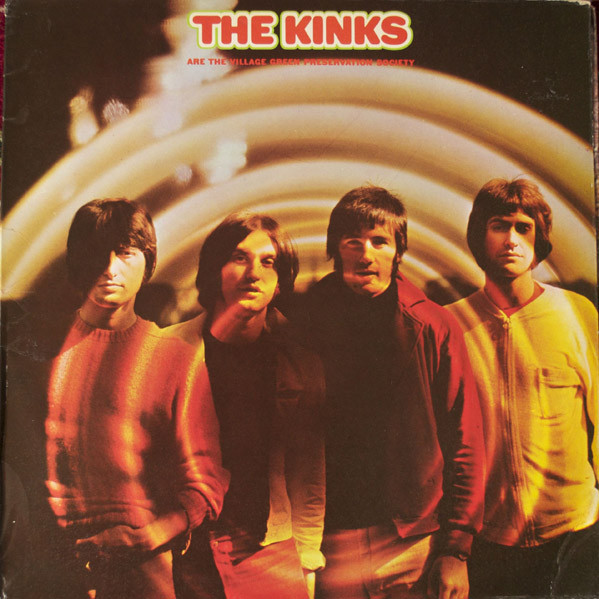As unfeasible as it seems, there was once a time when the singles chart was of equal importance to the album chart. Actually, no, it was more important. In the first decade of rock’n’roll, the single was king. Admittedly in the 60s The Beatles were masters of the pop single, but the fight for the plaudit of the second best singles band of the decade was a much closer one, with The Beach Boys, The Rolling Stones, The Monkees, The Who and Small Faces all having their supporters, and that’s just the white boys with guitars, and we’ve not even touched on the greatness of the Stax and Motown hit making machines. The Kinks were perhaps the most intriguing group in the scrap for the title of second best band of white boys with guitars during the 60s, Indeed, such was Ray Davies’ skill at writing brilliant singles that The Kinks albums often got overlooked, even to the point where their most celebrated long player, 1968’s The Kinks Are the Village Green Preservation Society didn’t even chart when it was released.
There’s a desire for a simpler and less hectic life at the heart of The Kinks Are the Village Green Preservation Society. Away from the hustle and bustle of the soulless big city, the album is a heartwarming reminder of a simpler life. Time is taken to reminisce about friends and family (“Do You Remember Walter?”, “Picture Book”), days gone by (“Last of the Steam-Powered Trains”) and life in the countryside (the near title track, “Sitting by the Riverside”). When the scene does shift to the bright lights of the big city, it is accompanied with words of warning, as “Starstruck” inevitably reminds me of friends of mine that headed to London to further their careers, only for most of them to have their characters and souls crushed as they struggled to come to the terms with the realisation that there’s more to life than being ambitious for material success.
The Kinks Are the Village Green Preservation Society was released on to a music scene that was suffering a severe post-Sergeant Pepper hangover. Everywhere music fans were being encouraged to expand their minds with various substances and the UK pop scene was besotted with a whimsical tea on the lawn psychedelia that really didn’t hold a candle to the heavier and harder stuff coming out of the USA at the time. While Ray Davies certainly wasn’t immune to the post-Pepper hangover, his writing was unique enough and his focus was on the personal. This resulted in The Kinks Are the Village Green Preservation Society being a collection of songs which were inwardly focused rather than trying to wow anyone with big statements for fans that would spend their hours listening to the album, wondering what the hell it all meant. This level of focus ensured that The Kinks Are the Village Green Preservation Society is one of those albums that is so perfectly balanced that you couldn’t point to a single songs that could be removed, or even re-sequenced, which given the fact that it was initially intended to be a dozen tracks long instead of the eventual fifteen tracks, is all the evidence you need that Davies and the rest of the band were on a uniquely productive creative roll at the time. It boggles the mind that this album didn’t bother the charts.
If there is a lesson to be learned from The Kinks Are the Village Green Preservation Society, it’s that it doesn’t hurt to be slightly out of step with your generation. While The Kink’s contemporaries were expanding their minds and releasing post-Sergeant Pepper albums that now sound badly dated (Their Satanic Majesties Request, The Who Sell Out, etc), Ray Davies’ manifesto was considerably more less ambitious, but ultimately more robust and timeless.














No Comment